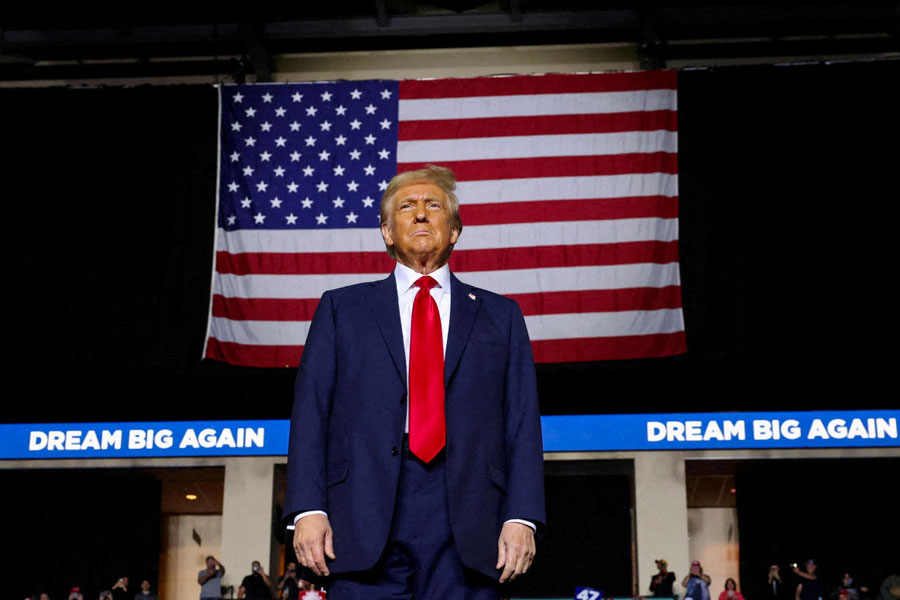U.S. President-elect Donald Trump on Monday pledged a 25% tariff on all products from Mexico and Canada from his first day in office, and an additional 10% tariff on goods from China, citing illegal immigration and the trade of illicit drugs.
"On January 20th, as one of my many first Executive Orders, I will sign all necessary documents to charge Mexico and Canada a 25% Tariff on ALL products coming into the United States, and its ridiculous Open Borders," Trump said in a post on Truth Social.
Trump said the tariffs would remain in place until the two countries clamp down on drugs, particularly fentanyl, and migrants crossing the border illegally.
Trump's threatened new tariff would appear to violate the terms of the U.S.-Mexico-Canada Agreement on trade, which Trump signed into law and took effect in 2020, and continued the largely duty-free trade between the three countries.
Mexico and Canada are the United States' largest trading partners. More than 83% of exports from Mexico went to the U.S. in 2023 and 75% of Canadian exports go to the country.
Canada and the United States at one point imposed sanctions on each others' products during the rancorous talks that eventually led to USMCA.
On China, the president-elect accused Beijing of not taking strong enough action to stop the flow of illicit drugs crossing the border into the U.S. from Mexico.
"Until such time as they stop, we will be charging China an additional 10% Tariff, above any additional Tariffs, on all of their many products coming into the United States of America," Trump said.
The Chinese embassy in Washington, the office of Canadian Prime Minister Justin Trudeau and the Canadian foreign ministry did not immediately respond to separate requests for comment.
Mexico's foreign ministry and its economy ministry did not have an immediate comment when contacted by Reuters.
Trump has previously pledged to end China's most-favored-nation trading status and slap tariffs on Chinese imports in excess of 60% - much higher than those imposed during his first term.
The Chinese economy is now in a much more vulnerable position given the country's prolonged property downturn, debt risks and weak domestic demand.
The dollar rose more than 2% against the Mexican peso and jumped 1% on the Canadian dollar after Trump posted on his social media platform. Japan's Nikkei fell 1% and U.S. stock futures dropped 0.3%.
In the run-up to the Nov. 5 election, Trump floated plans for blanket tariffs of 10% to 20% on virtually all imports. He also said he would put tariffs as high as 200% on every car coming across the U.S.-Mexico border.
He also voiced his intent to formally invoke the USMCA's six-year review provision upon taking office. Currently, it is expected in July 2026.
Economists say that Trump's overall tariff plans, likely his most consequential economic policy, would push U.S. import duty rates back up to 1930s-era levels, stoke inflation, collapse U.S.-China trade, draw retaliation and drastically reorder supply chains.
They say tariffs are paid by the companies that import the products subject to the duties, and they either pass on the costs to consumers or accept lower profits.
Trump frequently refers to countries paying as a consequence of his tariff plan, saying on Monday that Mexico and Canada will "pay a very big price."











